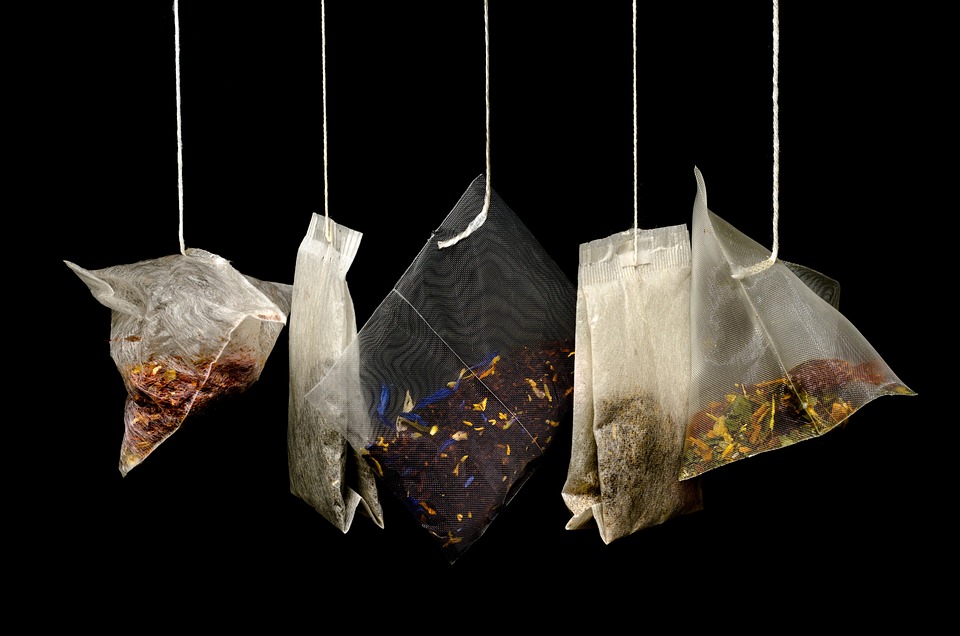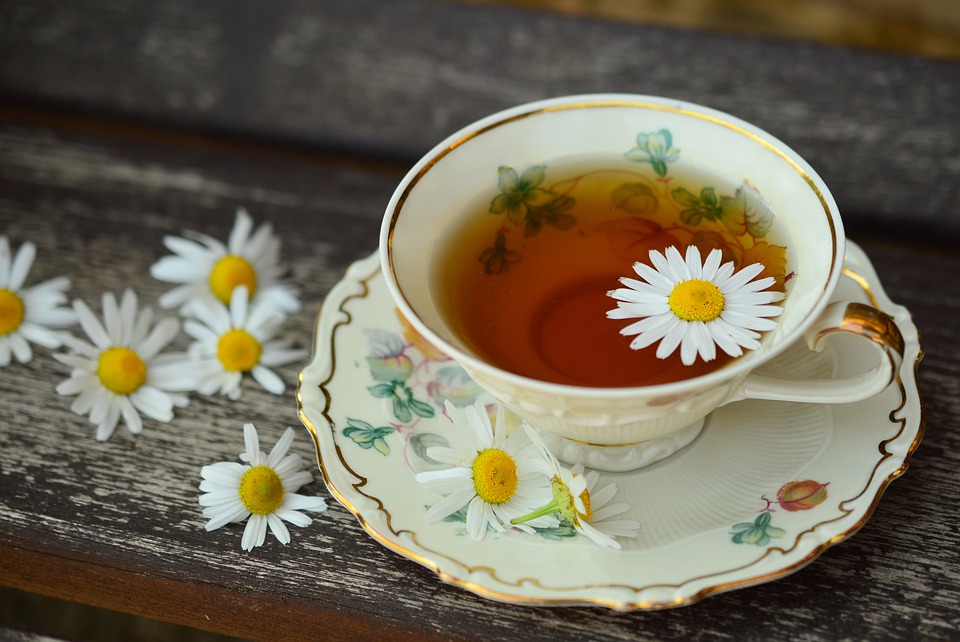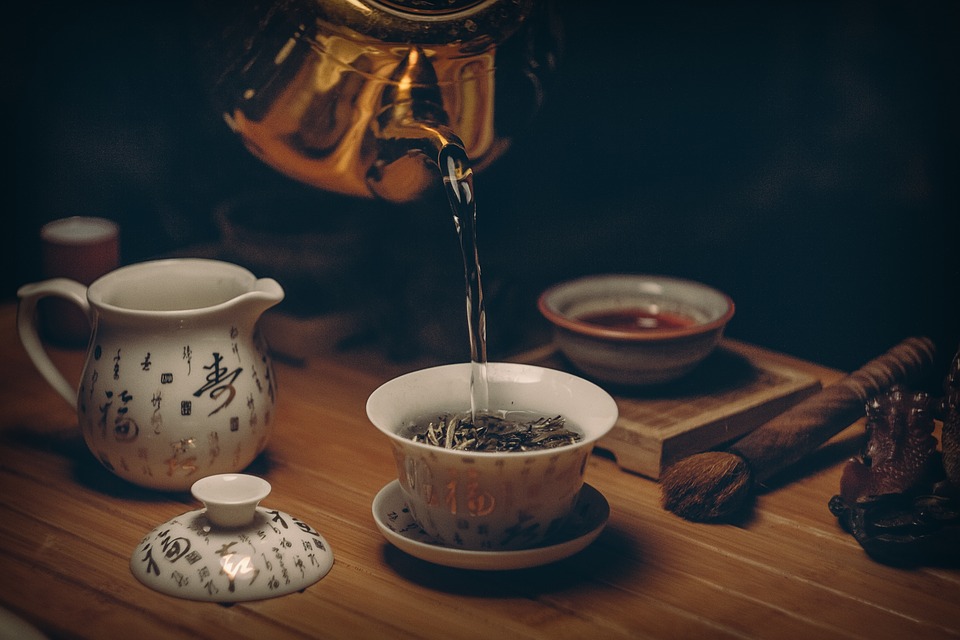
If you’re feeling a bit frazzled, a cup of tea can help to calm you down – and there’s a good reason for this. Studies have found that tea can have many positive effects on health, including boosting the immune system, reducing inflammation, and improving memory. In addition, the act of preparing tea can be beneficial in reducing stress and anxiety, and promoting a positive mood. Some of the best teas for stress come from herbal plants around the world.
When you’re stressed, it impacts your whole body and mind.
The stress hormones cortisol and adrenaline flood the bloodstream, causing symptoms such as:
- Rapid heartbeat
- Difficulty concentrating
- Insomnia
- Digestive problems
- Irritability
Stress is a normal response to threat but if a person experiences it chronically it can interfere with sleep and lead to health problems such as hypertension and cardiovascular disease. There are many medications that have been developed to help with stress and stress-related illnesses as they are so common. Many people take not just one, but two or three of these drugs.
Drinking tea can help to calm and heal the body’s response to stress. Some herbal teas contain ingredients that specifically target stress responses.
The health benefits of green and white tea have been well documented. Tea leaves contain catechins which help reduce inflammation, lower cholesterol, and support the immune system. This in turn helps the body deal with stress.
There are many types of teas beyond the ones we are most familiar with that can have beneficial effects such as reducing anxiety and stress, improving sleep, mood, and energy. There are a variety of teas that can help lower stress levels by decreasing the amount of cortisol, and increasing the production of GABA, serotonin, and dopamine. These teas can be found in many different locations, from Siberia to your backyard.
known as herbal teas. Medical research has only recently begun to investigate and confirm the long-held beliefs about the healing properties of herbal teas.
Herbal teas can relieve stress and anxiety better than some medications. Some teas contain high levels of compounds that can help with anxiety. These compounds, called adaptogens, flavonoids, and antioxidants, are being studied to see how well they work. The leaves, roots, and flowers of plants from around the world contain naturally occurring substances that help reduce levels of cortisol, adrenaline, and other stress hormones. Meditation and mindfulness practices have been shown to help lower levels of chronic inflammation, which has been linked to diseases such as cancer and Alzheimer’s.
The result? There are many benefits to getting a good night’s sleep, including reducing stress levels and improving overall health.
This is a list of teas that help with anxiety, which have been confirmed by medical studies to reduce stress. Since these teas don’t have caffeine, you won’t have to worry about feeling jittery or having your anxiety symptoms worsen.
There are many different types of tea that can help reduce stress levels. Enjoy them hot or cold, with honey or your favorite natural sweeteners to taste. If you are unfamiliar with more exotic tea flavors, give yourself time to become accustomed to the new tastes, or try blending them with other, more familiar varieties of tea, such as mild green or white tea. Herbs such as lavender and chamomile can be used to add flavor to iced tea.
Valerian root tea for anxiety
Valerian root is a natural way to reduce stress and anxiety that many people prefer to use over traditional anxiety medications.
You should take valerian root three times a day: once in the morning, once in the afternoon, and once at night. The levels of chemicals in your brain are affected by this. You can influence how calm your brain is by spreading out the dosage throughout the day.
There is still a lot of unknown information about how Valerian root works, even though it could help many people who have anxiety.
However, we know that Valerian root can impact the level of Gamma-aminobutyric acid (GABA), which is primarily responsible for passing signals in your brain. This refers to its ability to prevent, inhibit, or slow the transmission of signals by your nervous system.
The GABA molecule binds with receptors in your brain, which effectively stops the transmission of nerve impulses. The more GABA you have in your brain, the more relaxed you feel.
Valerian root can help improve your mood by reducing stress and anxiety and promoting positive thinking.
If you are interested in trying Valerian root tea, there are many easy recipes. If you want to make a valerian root drink, it’s a good idea to use it as a base and then add other ingredients to taste.
Green tea for less stress
Green tea is a great way to reduce stress. It keeps you calmer, helps you feel less anxious, and lessens your stress.
You might choose to replace your morning coffee with green tea to get the benefits of both. Green tea can help you relax, whereas coffee may worsen anxiety. Switching to a plant-based diet can have an immediate positive impact on your mental health.
Green tea contains two compounds, l-theanine and EGCG, which work together to change the chemicals in your brain and produce a feeling of relaxation and calm. Green tea can help regulate your brain’s signals, so that even when you feel stressed, you can still think clearly and stay focused.
Further research is needed to uncover all of the potential benefits of green tea. A study conducted last year found that people who drank green tea generally experienced less stress, were in a better mood, and felt calmer and more in control than those who did not drink the tea.
In addition to the fact that tea can help to replace caffeine, it also has a stimulating effect that can help you to focus and concentrate. If you contains to face a stressful problem, green tea may help you stay calm and focused in order to resolve the issue.
Chamomile tea for relaxation
Many people turn to chamomile tea as a way to relax before bed and promote a good night’s sleep. Chamomile tea is a natural sleep aid that can help you fall asleep quickly and stay asleep throughout the night. Chamomile can also be consumed during the day to help improve one’s mood by reducing anxiety, depression, and stress.
Chamomile contains a particular antioxidant called apigenin. The apigenin helps to reduce panic signals by binding with GABA nerve receptors in your brain. It’s like having extra GABA, which is similar to taking valerian root.
It may take approximately 45 minutes for apigenin to be metabolized by your body. To reduce stress, drink chamomile tea an hour before a situation that is likely to be stressful. The consumption of chamomile can promote a sense of relaxation in individuals who are feeling stressed, or who have just experienced a stressful event.
Chamomile can help regulate blood sugar levels, which can in turn prevent panic attacks. Sugar rushes can cause feeling anxious or panicky for many people.
Too much sugar in the blood can cause a person to overthink things, feel their heart beating hard, and have sudden attacks of fear. Chamomile tea helps regulate blood sugar, which in turn helps avoid sudden surges of anxiety.
Rose tea for calming
Rose petal tea can help you to relax and feel less anxious. Rose tea is made with the dried petals of roses, and it has a great smell and taste. Drinking rose tea can help you stay calm.
The soothing aroma of rose tea has a calming effect that can help reduce stress and promote relaxation. Rose petal tea may help to slow your brain down when you are drunk and also help to regulate your natural body clock.
This activity has a precise way of helping to relax your brain, so you feel calmer and less anxious without feeling drowsy.
Phytonutrients and antioxidants are naturally occurring in rose petals.
Slowing down your body’s natural rhythm
Now, all flowers have their own circadian rhythm. Your circadian rhythm is like a built-in alarm clock that tells your body when to sleep. In the same way, plants have their own natural clocks that tell them when to bloom. There are nutrients in rose petal tea that can impact your body’s natural rhythm.
The presence of melatonin in rose petals suggests that they may promote relaxation and sleep. If you want to feel calmer, you can try introducing more melatonin to your body. Melatonin is a hormone that helps regulate your body’s natural sleep-wake cycle, so increasing your body’s levels of it may help slow down your body’s overall rhythm and make you feel more relaxed.
Lavender tea for stress
One of the best-known teas for stress is lavender. Lavender’s calming properties are well known. Lavender is available in different forms, such as essential oils and incense. It can help to reduce anxiety and create a feeling of calm. The antioxidants in lavender tea are similar to those in regular tea leaves, but the tea does not contain caffeine. Lavender tea can help to reduce anxiety and also calm the digestive problems that are often brought on by stress. This lavender and chamomile tea blend is perfect for drinking before bed to help you relax and fall asleep.
Passionflower tea for anxiety
If you are feeling overwhelmed, it is likely because your brain is working overtime and causing you to feel anxious and stressed. Though not widely known, passionflower tea has been shown to be an effective way to reduce anxiety.
Passionflower tea can help relax the brain and slow down communication between neurons. Passionflower tea, like Valerian root, promotes the production of gamma-aminobutyric acid (GABA) in your brain. The binding of GABA to your nerve receptors has a sedative effect on your brain, causing it to slow down and relax.
Passionflower can help improve your cognitive function by keeping your brain clear and promoting rational thinking. More research revealed that by slowing down brain signals, not only is anxiety reduced, but memory is enhanced.
A study found that passionflower not only helped to ease anxiety in mice, but also helped them fall asleep.
Tea, Meditation, and Mindfulness
The act of sipping a warm beverage slowly can be soothing, and the ritual of preparing and enjoying tea can provide a moment of calm in a hectic day. While the bioactive ingredients in herbal teas work to reduce stress and improve sleep, other aspects like the slow sipping and ritualistic preparation can also help to calm the mind and body.
Meditation and mindfulness can help reduce stress. If you focus on the present, your mind will stop worrying about the past and future, which can help reduce stress hormones and make you feel better.
That is the reason tea rituals have been accepted by people globally. The customs and traditions surrounding tea can help reduce stress, from English afternoon tea to the formal Japanese tea ceremony.
Although you don’t have to go through a lot of trouble to create a peaceful tea ritual, it can be calming in itself to select a favorite cup, choose a relaxed moment like bedtime, and be mindful of preparing and drinking your tea. This can also amplify the soothing effects of the tea. If you’re feeling anxious or stressed, try adding a short meditation to your tea ritual. This can help calm your mind and give you a moment of peace.
Making herbal teas part of your daily routine can help reduce stress and its effects by supporting other healthy habits, such as having a bedtime routine or eating more nutritious foods.
How to Buy and Use Herbal Teas
You can find herbal teas online or in reputable natural food and health stores. There are many teas that can help reduce stress, which can be bought in different forms such as loose tea, tea bags, capsules, or extracts. Some, like ashwagandha, are sold only in powdered form. If you want to try growing your own lavender, catnip, or lemon balm from seed, it doesn’t matter if you have a green thumb or not.
If you’re new to loose-leaf and herbal teas, one of the best tools is an infuser. This will allow you to put the leaves or herbs directly into the water without having to worry about them floating around or falling out. A tea infuser is a container used to hold loose-leaf tea so that it can seep into your cup. We recommend the Flourish and Thrive Genuine Tea Infuser. It’s cheap and works great!
There is no maximum amount that has been determined to be safe for many herbs, and they are not monitored by the FDA or other food and drug regulating bodies. Therefore, it is crucial that you only purchase these herbs from trustworthy retailers who do not mix in other ingredients and label their products accurately.
Herbal teas are safe when used in recommended serving sizes, but it’s important not to overdo them. Do not try to integrate all of these changes into your routine at the same time, but rather gradually add them in one by one to see which ones have the best effect on you or if you have any negative reactions such as allergies or digestive issues. If you are allergic to pollen or seasonal plants, you may have an allergic reaction to herbal teas; so it is best to go slowly and find out whether you’ll have problems with teas you haven’t tried before.
The effect these stress-reducing herbal teas have on prescription medications is not well known as not many studies have been conducted on the matter. Therefore, it is advisable to inform your doctor if you are taking any medication while also trying herbal remedies for anxiety and stress.
Herbal teas have been around for a long time and are full of ingredients that can help reduce stress and promote relaxation. Green and black tea not only boost your immune system, but they can also improve your sleep, reduce anxiety, and improve your mood and concentration.














